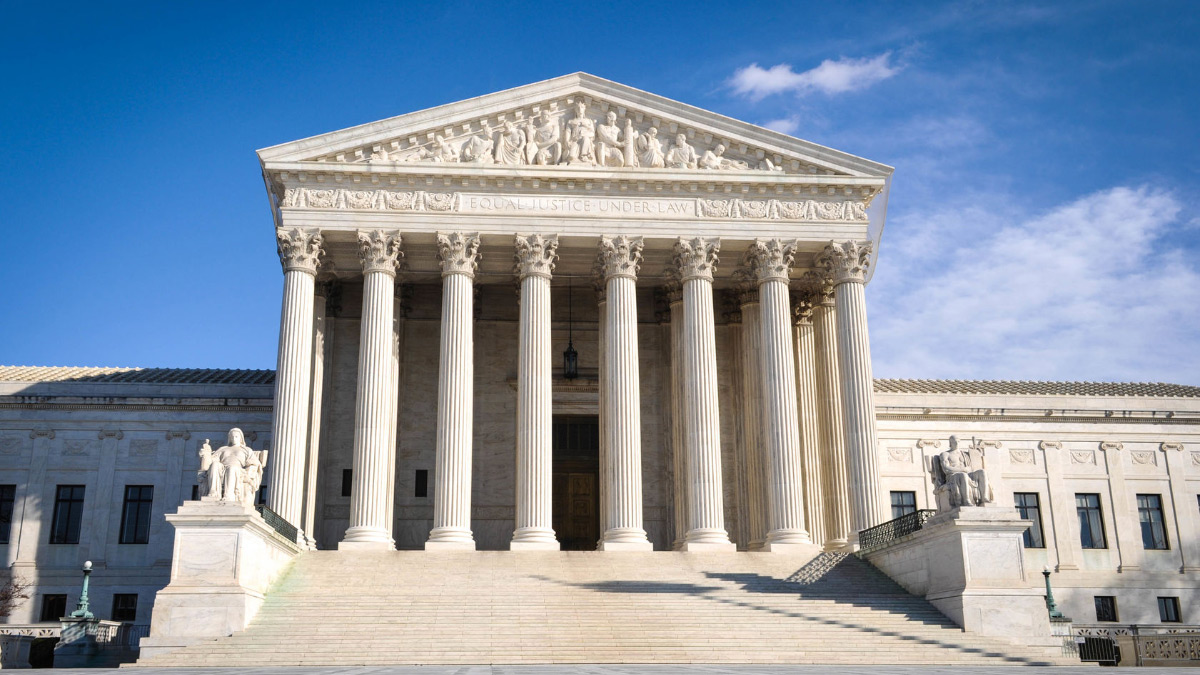Desperate to reclaim the Supreme Court as an engine of liberal policymaking, Democratic National Committee Chairman Tom Perez and others are now flirting with a new court-packing scheme, which would increase the number of justices from 9 to 11 (or more) next time the Democrats control both the presidency and Congress. Progressive activists see this as the best way to preserve extra-constitutional decisions in the areas of abortion, gay marriage, affirmative action and other controversial issues where the court has, in effect, substituted its wisdom for that of the Congress.
Two necessary observations: First, there is nothing in the Constitution to prohibit an expansion of the court. Second, the idea of such an expansion is based on a widely held misunderstanding of the Supreme Court’s decision in Marbury v. Madison, the landmark 1803 case affirming the court’s power to interpret the Constitution and void federal laws that violate it.
The underlying problem here is the acceptance on both the left and right that the Supreme Court, since Marbury v. Madison, is the rightful and self-proclaimed final arbiter of the Constitution. This would mean, if correct, that the judiciary is not a co-equal branch of government, but a super-branch serving as a perpetual constitutional convention.
This is American constitutional mythology at its worst. It is also the prevailing view in our law schools and universities. But it’s wrong.
Understandably, today’s generations look at how the Supreme Court has functioned during our lifetimes, read the sweeping language of Chief Justice John Marshall in Marbury (“It is emphatically the province and duty of the judicial department to say what the law is.”), and comfortably conclude that for more than 200 years the court has occupied an exalted position in our constitutional order.
In fact, Marbury simply took account of popular sovereignty and affirmed that the judiciary is a co-equal branch of government that must consider the Constitution when presented with an actual case or controversy.
American judges and lawyers in the early Republic were schooled in the British system of parliamentary sovereignty where the courts could not review or strike an act of the legislature because Parliament was the ultimate sovereign. To paraphrase the great British jurist William Blackstone, Parliament could make or unmake any law as it saw fit.
Because the American states and later the federal government were built on the foundation of popular, rather than parliamentary, sovereignty, judges had to adapt to this new idea. And, as evidenced by several early state court decisions, it was a struggle to break the old ways of thinking.
While early American courts embraced the idea of judicial review (i.e., the power of courts to review decisions of another department or level of government), they never even considered adopting judicial supremacy (i.e., courts are the final arbiters of the meaning of constitutions).
Indeed, state courts embracing judicial review also articulated “the doubtful case rule.” In essence, what this means is that a court should not negate an act of the legislature unless the act blatantly violates the Constitution. If there is any doubt about the legitimacy of a statute, it should be resolved in favor of the people’s representatives by permitting the law to stand. Close calls are not the business of the judiciary.
To read judicial supremacy into Marbury undermines popular sovereignty and puts the Supreme Court above the other branches of government and the people.
A more modest understanding of Marbury is borne out by contemporary reaction to the decision. Although Thomas Jefferson’s Democratic-Republicans and John Marshall’s Federalists believed themselves to be in a battle for the survival of sound government in America, pro-Jefferson newspapers expressed little hostility toward the opinion. James Madison, the defendant in the case, paid even less attention to the decision or its ramifications. Madison put not a single comment in writing about the decision.
Jefferson and his allies’ failure to criticize the court’s discussion of judicial review is a strong indicator that there was little or no disagreement on this point. Similar to the reasoning of so many state judges at the time, Jefferson believed all three branches had a duty to regard the Constitution when performing their duties. And that’s all that Marshall really said in the opinion.
Any lasting remedy to our Supreme Court-centered politics needs to begin with first principles. Judicial supremacy is alien to our Constitution and was not established by Marbury. Moreover, when exercising the more modest power of judicial review, courts must rigorously adhere to the doubtful case rule and leave policymaking to the elected branches.
To continue on our current path will yield worse than court packing plans; it will ultimately undermine the rule of law.












